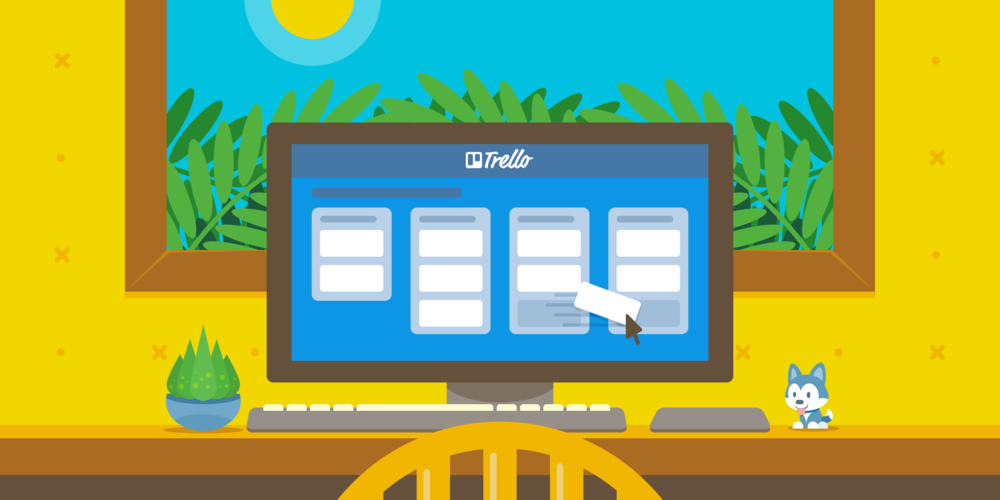Mastering Office Productivity: 10 Proven Tips for Streamlining Work Time
Feb-11-2024

In today's fast-paced work environment, managing your time effectively is more crucial than ever. With deadlines to meet, meetings to attend, and emails to respond to, it can feel like there's never enough time in the day. Nonetheless, by implementing appropriate strategies, you can not only achieve your objectives but surpass them, delivering superior outcomes more efficiently. Here are 10 tips for organizing your work in the office that will transform your productivity and elevate your career.
1. Prioritize Your Tasks

Start with a plan: Every effective day starts with a well-defined plan. Spend the initial 15 minutes of your day sorting your tasks by their urgency and significance. The Eisenhower Matrix serves as an effective strategy for managing tasks, categorizing them into four segments: tasks that are both urgent and important, tasks that are important but lack urgency, tasks that are urgent yet lack importance, and tasks that are neither urgent nor important. Concentrating on tasks that are urgent and important allows you to allocate your energy towards the most impactful activities in your work.
2. Embrace Time Blocking
Allocate specific times for specific tasks: Time blocking is an effective strategy that involves dedicating set periods of your day to distinct tasks or activities. This approach aims to reduce the productivity loss associated with frequent task switching. For instance, you could reserve the initial hour of your day for managing emails, followed by a dedicated two-hour period for concentrated work on a project. By allocating specific times for specific tasks, you can foster a more organized and efficient workday, enhancing the quality of your output.
3. Limit Interruptions
Create boundaries to maintain focus: Interruptions are productivity killers. To limit them, set clear boundaries with your colleagues. For instance, if you're working on a critical report, inform your team that you'll be in a "focus zone" for the next hour and would appreciate not being disturbed. Additionally, utilize tools like "Do Not Disturb" modes on your phone and computer to minimize digital interruptions. The fewer interruptions you have, the more efficiently you can work through your tasks.
4. Master Your Email

Don't let email control your day: It's easy to fall into the trap of constantly checking and responding to emails, but this can significantly disrupt your work flow. Set specific times for checking your email, such as once in the morning, after lunch, and before the end of your workday. This approach allows you to handle emails in batches, saving time and keeping your focus on the tasks that matter.
5. Optimize Your Workspace
A tidy space equals a tidy mind: Your physical workspace can significantly affect your productivity. Take the time to organize your desk, ensuring everything you need is within easy reach and that your workspace is conducive to focused work. Consider ergonomics as well; a comfortable chair and a properly positioned monitor can reduce strain and fatigue, allowing you to work more effectively for longer periods.
6. Delegate and Collaborate
You don't have to do everything yourself: Delegating tasks is not a sign of weakness but of smart management. If there are tasks that can be better handled by someone else on your team, don't hesitate to delegate. This not only frees up your time for more critical tasks but also empowers your colleagues by trusting them with more responsibilities. Furthermore, collaborating on projects can bring new perspectives and ideas, enhancing the quality and efficiency of the work.
7. Use the Right Tools

Leverage technology to streamline your work: Numerous tools and apps are designed to improve productivity and organization. Project management tools like Trello or Asana can help you keep track of your tasks and deadlines, while apps like Focus@Will can enhance your concentration with productivity-boosting music. Find the tools that work best for your workflow and leverage them to streamline your processes.
8. Take Regular Breaks
Rest to maintain peak performance: Interestingly, implementing frequent pauses in your work routine can greatly enhance your efficiency. The Pomodoro Technique, a method that suggests 25 minutes of work followed by a short 5-minute break, has been shown to effectively sustain concentration and avert exhaustion. Allowing yourself moments of rest enables you to tackle your tasks with increased vigor and attention.
9. Set Realistic Goals
Know your limits and work within them: It's essential to set achievable goals for your workday. Overloading yourself with tasks can lead to stress and disappointment when you inevitably fall short. Establishing achievable objectives allows you to keep a consistent rhythm during the day, resulting in improved work quality and a stronger feeling of achievement.
10. Reflect on Your Day

Learn and improve from each day: At the end of each workday, take a few minutes to reflect on what you accomplished and what could have gone better. This reflection process is invaluable for continuous improvement and can help you refine your workflow and strategies for better results in the future.
Conclusion
Efficiently managing your work schedule is crucial for delivering top-notch outcomes in our fast-paced professional landscape. By assigning priority to your duties, adopting the practice of time blocking, minimizing distractions, and utilizing the strategies mentioned, you can enhance your efficiency and stand out in your field. Keep in mind, being productive doesn't necessarily mean putting in more hours, but rather, adopting a smarter approach to work. Armed with these 10 strategies, you're on the right path to optimizing office productivity and fulfilling your career aspirations.







